Search Results for: Bears
Skip to resultsCan’t find what you’re looking for? Visit our FAQ page.
6,904 results for: Bears
-
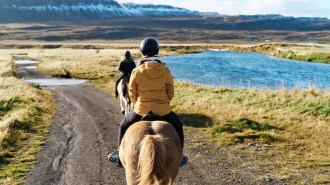 Life
LifeHorses may have become rideable with the help of a genetic mutation
To make horses rideable during domestication, people may have inadvertently targeted a mutation in horses to strengthen their backs and their balance.
By Jake Buehler -
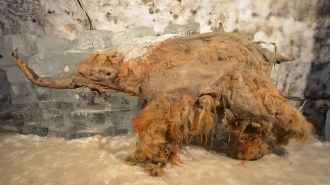 Animals
Animals40,000-year-old woolly mammoth RNA offers a peek into its last moments
Ancient RNA from Yuka, a 40,000-year-old woolly mammoth preserved in permafrost, can offer new biological insights into the Ice Age animal’s life.
By Meghan Rosen - Animals
What the longest woolly rhino horn tells us about the beasts’ biology
A nearly 20,000-year-old woolly rhino horn reveals the extinct herbivores lived as long as modern-day rhinos, despite harsher Ice Age conditions.
By Jake Buehler -
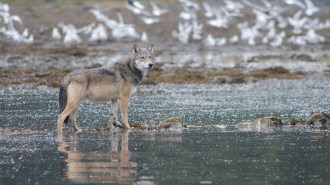 Animals
AnimalsA wolf raided a crab trap. Was it tool use or just canine cunning?
Video from the Haíɫzaqv Nation Indigenous community shows a wolf hauling a crab trap ashore. Scientists are split on whether it counts as tool use.
By Elie Dolgin -
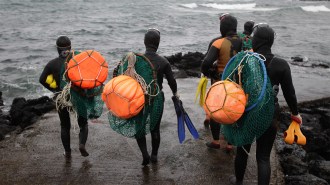 Humans
HumansThese female divers spend more time underwater than any other humans
At an average age of 70, these women divers in South Korea still forage in the sea up to 10 hours a day and spend more than half of that time underwater.
-
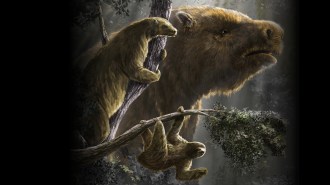 Paleontology
PaleontologySloths once came in a dizzying array of sizes. Here’s why
A new fossil and DNA analysis traces how dozens of sloth species responded to climate shifts and humans. Just two small tree-dwelling sloths remain today.
-

Which animal should scare you more?
Editor in Chief Nancy Shute discusses which should scare you more: sharks or ticks and fungus — and why sharks might actually be the least of your worries.
By Nancy Shute -
 Space
SpaceA NASA rover finally found Mars’ missing carbon
The Curiosity rover identified hidden caches of the mineral siderite, which could help explain why Mars lost its habitable climate.
-
 Animals
AnimalsThese are our favorite animal stories of 2025
From clever cockatoos to vomiting spiders, these cool critters captivated us this year.
By Carly Kay -
 Health & Medicine
Health & MedicineThis baby sling turns sunlight into treatment for newborn jaundice
A student created a low-cost baby carrier that filters sunlight to safely treat jaundice where electricity and equipment are scarce.
By Elie Dolgin -
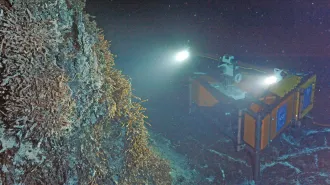 Earth
EarthAn underwater volcano off Oregon didn’t erupt in 2025 after all. Why not?
Data from Axial, the most-monitored underwater volcano, are helping geophysicists hone eruption predictions. For Axial, 2026 is their next bet.
-
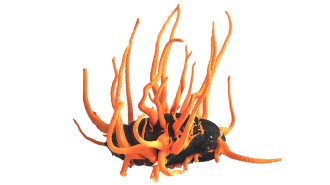 Life
LifeWhy these zombie caterpillars can’t stop eating
Sneaky chemistry by a real-life “Last of Us” Cordyceps fungus mind controls its zombie insect victims by convincing them they’re starving.
By Susan Milius